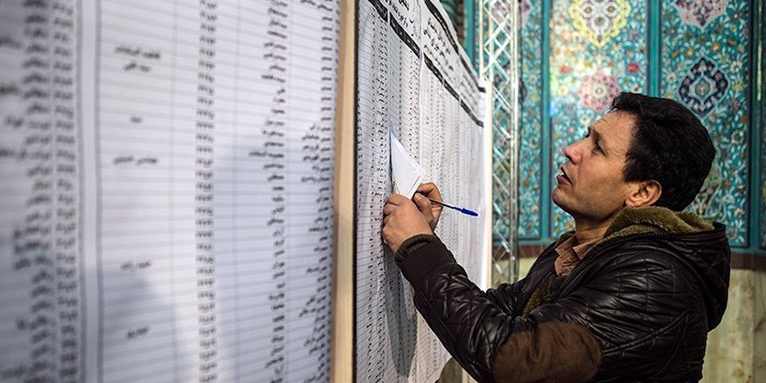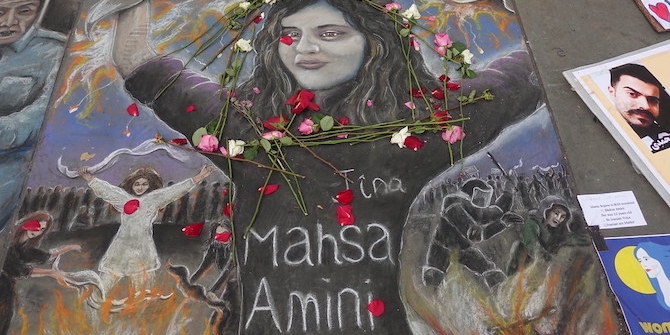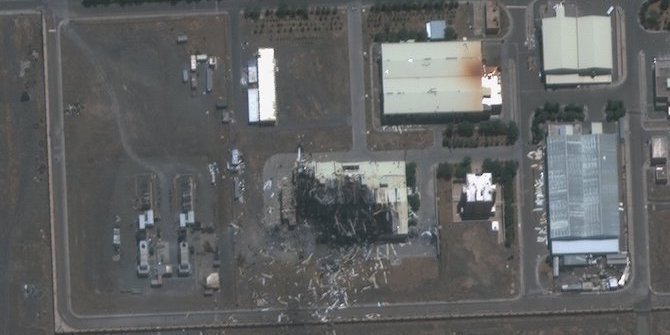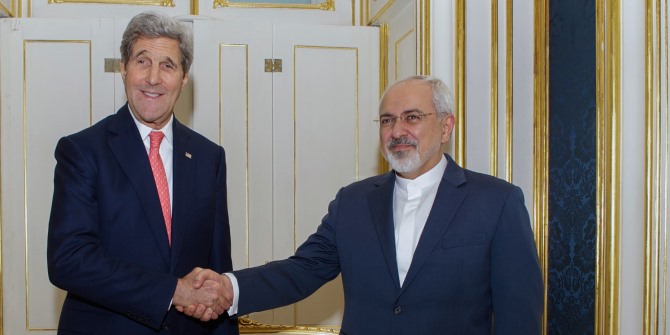by Ali Ansari

Few countries manage the political spectacle of elections as well as Iran. Frequently controversial and rarely dull, the election process tends to follow three distinct phases of negotiation, only one of which actually involves the electorate. The first relates to the process of candidate registration and vetting, which in the absence of coherent political parties, usually involves large numbers of prospective candidates being ruthlessly reduced down to a cohort of nominees acceptable to the establishment and is the result of a negotiation between the government of the day and the body responsible for vetting known as the Guardian Council, which remains a bastion of the hard-line establishment. The parameters of any election are established at this stage and on this occasion the Guardian Council was quite determined to get its way, even if it made a show of flexibility, which only helped to further tarnish a process that is meant to be grounded in the law. Ultimately the shifting sands at the political margins, of those banned, approved and then banned again (or vice versa) only served to further undermine a process that is largely viewed as an exercise in gerrymandering.
This is then followed by a week of strictly controlled campaigning, and a vote, followed by the final stage of negotiation, around the counting and final results. It was this final stage that caused such an uproar in 2009. On this occasion the parameters were so tight, the establishment effectively insured itself against such a possible result, but even in this case, as it became apparent that the results would be at the outer limits of what was tolerable, some negotiation appears to have taken place to ensure that, for example the hard-line Ayatollah Jannati (the secretary of the body responsible for all the vetting) secured the final seat for the Assembly of Experts in Tehran. Indeed, rumours have abounded about the pressures being put to ensure that some well-known hardliners get elected, and the count in Tehran for example took an inordinately long time to reach its conclusion. It is not at all improbable that in the next two months, as the run-offs are contested, more hard-liners will make it back into the Parliament.
All in all, the process is massively controlled, and good governments will manage it well, with respectable turnouts, credible results and above all no problems on the streets, while the less competent will deliver fiascos like 2009. Khamenei will have reasons to be pleased with the process this time round and if some of his associates have had to make the ultimate sacrifice, this exercise in ‘heroic flexibility’ has delivered something altogether more valuable: a credible election that retains control and buries the ghosts of 2009.
But amongst all the self congratulation we might also pause to reflect on how things might be improved so that the temptation to interfere is minimised and public trust is not only regained but consolidated:
- Iran is in urgent need of an electoral register and voters should be registered to vote for particular districts. At present, voters need only turn up at a particular voting station with their identification documents which are then stamped along with their index finger. Turnout is based more on estimation than calculation and, on this occasion for example, the estimated total number of eligible voters actually varied between institutions.
- The size of voting districts varies widely. While some rural areas might return one MP and therefore be faced with a handful of names to choose from, Tehran at the other extreme, returns 30 MPs from a candidate list which may number as on this occasion, 1,000 names. Moreover, there is no rationale for Tehran with 8 million people (10% of the total population) to return 30 deputies (roughly 10%) while Mashhad with 2.7m people (3.4% of the population) to only return five (1.8%).
- Few people are aware that votes in Iran are cast by writing the names of the candidates chosen. While this might be feasible – though by no means desirable given the vagaries of the script and varieties of handwriting – where one candidate is required, it borders on the absurd, in places like Tehran, where voters have to patiently write down the name of 30 candidates. Given there were two elections taking place this time round, voters in Tehran had to in fact write down the names of 46 individual candidates! Quite apart from the potentially high rate of spoilt ballots, since names can be written in any order, the counting of such ballots becomes extremely laborious and must be done, and checked, manually.
- The vote count itself is managed in a somewhat ad hoc manner with ballot boxes being distributed among nominated counters and not centrally, or transparently, monitored. On this occasion for example, evidence emerged of ballots being counted in what appeared to be people’s homes. Moreover, as sections were completed, a tally of the votes was announced resulting in confusion over the twenty four hours after the count, as periodic announcements were seized upon and candidates went up and down the list according to districts returned. Far better for the authorities to collate the results and announce the final tally when completed.
- The Guardian Council has lost all credibility as an objective monitor of elections. The time has come to set up a separate ‘Electoral Commission’ with members drawn from all factions and none to administer elections. To have elections administered by the Ministry of Interior, opens up the possibility of government interference (as in 2009) and as noted above elections become exercises in elite negotiation with little reference to the electorate at large.
There has been discussion in the Ministry of the Interior for some time about the use of electronic terminals and ballots in elections though the Guardian Council, for reasons that may be obvious, has repeatedly rejected such requests. On this occasion perhaps, this suggestion should be properly investigated. It would help rationalise an otherwise chaotic system that is vulnerable to political manipulation. Electronic balloting and counting would speed up the process and while not eliminating the possibility of interference (unless the process was handled and/or monitored by external observers – unlikely in the current situation), would considerably reduce the risk and above all enhance voter trust – a vital component in any election.
 Ali Ansari is Visiting Professor at the LSE Middle East Centre. He is also Professor of Iranian History at the University of St Andrews, and founding director of its Institute of Iranian Studies.
Ali Ansari is Visiting Professor at the LSE Middle East Centre. He is also Professor of Iranian History at the University of St Andrews, and founding director of its Institute of Iranian Studies.






